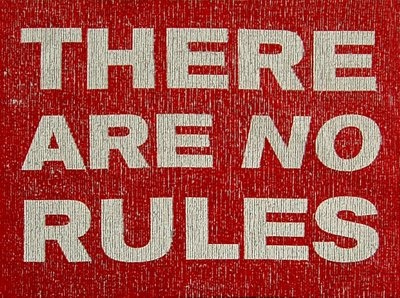The Entrepreneurial Free Spirit
Topic: Entrepreneur Evangelist | Comments (1)
 VentureBeat’s Entrepreneur Corner currently has a video posted called, “Entrepreneurs have no rules.” In the video, Accuray‘s John Adler talks about why he was relieved when his son, Trip, decided to launch Scribd: because he was a “free spirit.”
VentureBeat’s Entrepreneur Corner currently has a video posted called, “Entrepreneurs have no rules.” In the video, Accuray‘s John Adler talks about why he was relieved when his son, Trip, decided to launch Scribd: because he was a “free spirit.”
This comment reminded of Jonathan Fields’ article from a few weeks ago, “The Delusions of Entrepreneurs,” in which he explored what made so many of the trappings of entrepreneurship a bit more myth than reality — including notion of freedom, control, money and passion.
Jonathan’s points were all valid: starting your own business can put just as many shackles on you (or even more) as working for someone else, they are just different. And I think this is the point that really matters, and which the senior Adler was making about his son: if you are not good at following rules, then it’s very hard to get ahead in someone else’s business.
Now, to be fair, there is a certain amount of rule following that we all need to do to be successful in life: if I make a habit of driving on the left side of the road (in the US), odds are good that my professional success is going to be hampered by turning myself into road pizza before I can launch my product.
However, if my aversion to rules is more subtle — take, for instance, a compulsive need to be more direct and honest than politically correct (which happens to be true) — then it’s easy to see how having my own business probably has better odds of success than me trying to work for someone else. There will always be people who consider my directness to be uncomfortable or impolite, but if they are clients or colleagues rather than a boss, then we can go our separate ways agreeing to disagree, instead of miserably trying to stay in a professional marriage that doesn’t meet our needs.
Another reason that I think John Adler’s point is valid — and one of the things I think Jonathan Fields missed in his reasoning — is that when you have your own business, you get to determine what “success” means to you. If you are working in someone else’s business (especially a large enterprise), what constitutes success is often prescribed by someone who came before you. If you have your own business, then you get to draw the map. Sure, you could find yourself stranded on a ledge somewhere, but that’s equally true when you work for someone else.
- Is your definition of success making a ridiculously large income?
- Is your definition of success being able to sleep in until 10:00 a.m. every day?
- Is your definition of success being able to sell your company and retire?
- Is your definition of success having 50 employees? 100? None?
- Is your definition of success revolutionizing your industry?
- Is your definition of success being a leader in your community?
- Is your definition of success having the time to do volunteer work?
- Is your definition of success being location independent?
- Is your definition of success being able to take your dog to work?
- Is your definition of success getting to work with your family/friends?
- Is your definition of success having the flexibility to go to your kids’ school events in the middle of the day?
We all define success differently, because we are all motivated by different things. Owning your own business gives you the change to attach what motivates you to how you are going to define success, and the drive your business towards those goals. When you join someone else’s business, you are agreeing to their destination.
And, if like Trip Adler, you’re too much of a ‘free spirit’ for someone else’s rules, then starting your own business may just be the only rational choice you could make.
Alora Chistiakoff is an entrepreneur, blogger, strategist and project manager who has been developing online business and technology for startups for more than a decade. She co-owns The Indigo Heron Group, Inc., a web strategy firm in Austin, Texas